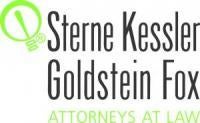On August 31, 2012, the Federal Circuit (CAFC) handed down an en banc decision in two “divided infringement” cases, Akamai Technologies, Inc. v. Limelight Networks, Inc. and McKesson Technologies, Inc. v. Epic Systems Corp. The joint decision does not disturb the present rules that direct infringement (under 35 USC §271(a)) requires all elements of a claim to be carried out by a single actor, or that liability for induced infringement (under 35 USC §271(b)) still requires actual infringement to occur. The decision, however, decouples these concepts, at least for method claims. Under the decision, the act of direct infringement required for a finding of inducing infringement can be carried out either (a) by the inducer and other parties, or (b) by multiple other parties. The rule now is that it is not relevant to inducement that the actual infringement is split between multiple parties. Liability for inducement still requires that the alleged inducer, with knowledge of the patent, intentionally encourage actual infringement by others, even if they are innocent of intent. We discuss next the implications of the decision to personalized medicine patent claims (PMCs).
Under the decision, a two-step PMC such as: “(1)Test for mutation X and, if present, (2) Administer drug Y,” will be more easily enforceable by a patentee than previously. For example, a physician would be liable for inducing infringement if (A) the physician knows of the patent, (B) induces a clinical laboratory to do the test for mutation X (and the laboratory does the test), and (C) the physician then completes the infringement of the claim by administering the drug Y. It seems unlikely, however, that anytime soon physicians will find themselves at the receiving end of patent infringement lawsuits, accused of inducing infringement by clinical labs. For one, most physicians will not have the requisite knowledge of the patents involved to establish an intent to induce. Also, 35 USC §287(c)(1) limits the damages and remedies available against physicians. As far as clinical laboratories are concerned, they are not likely to be liable for inducing infringement of two-step PMCs, unless, with knowledge of the patent, they encourage physicians to administer the drug Y in response to the diagnostic results.
What seems more likely is that a pharmaceutical company will find that it is easier than before to be accused of inducing. If, with knowledge of a two-step PMC, the company labels a new drug or diagnostic test with personalized medicine instructions (e.g., “test for mutation X and, if present, treat with drug Y”) it could be liable for inducing infringement even though neither the physician nor the clinical laboratory are knowledgeable of the patent and are innocent actors.
The Akamai/McKesson decision applied to two-step PMCs somewhat balances the prejudice that patent owners faced after the recent Supreme Court decision in Mayo v Prometheus, where simple single step diagnostic claims (such as “Diagnose the presence of disease A by detecting mutation X,” i.e., without any “administering” step) were deemed “laws of nature.” However, the burden of proof on patent owners will still remain high. The patent owner must still prove that the alleged inducer knew of the patent claim and intentionally instructed another party or parties to perform one or more steps of the claim. This burden is not as high as requiring a showing of agency and control by two or more parties practicing the claim (as was the law before Akamai/McKesson) , but still high in that it must include proofs of knowledge and intent.
The CAFC was very closely divided on this case with five judges joining in the majority opinion and four judges dissenting. Moreover, 34 Amicus briefs were filed. The parties will undoubtedly request review by the U.S. Supreme Court.




 />i
/>i

